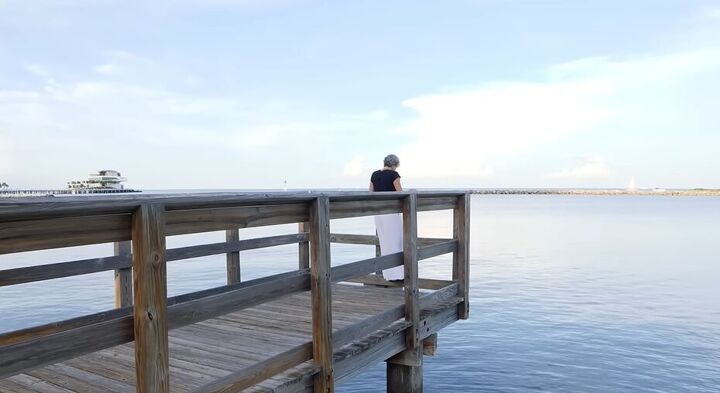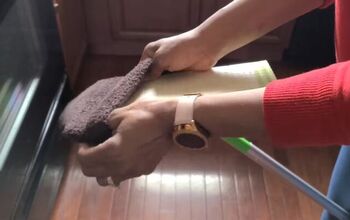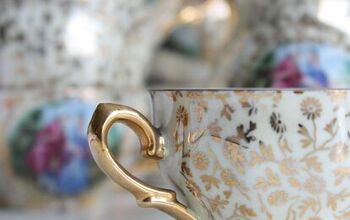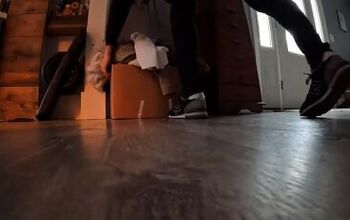The Dark Side of Minimalism: 4 Things to Avoid in Minimalism

There are many sides to minimalism, and not all of them are good. Minimalism has always intrigued me as a way to simplify, declutter, and find clarity.
That being said, I have walked the minimalist path now for 15 years, and with all forms of self-discovery, that path is not necessarily straightforward.
I’ve discovered that there is a dark side of minimalism as well, and I’m ready to share my thoughts on that because although minimalism has changed my life for the better in so many ways, minimalism also comes with a lot of challenges and pitfalls that could have the opposite effect on others.
1. Aggressive decluttering
I recently got rid of 98% of what I own and embarked on an extreme minimalist path. If I would have embarked on this path earlier, it would have been a huge mistake.
Aggressively decluttering without mindful evaluation may result in repurchasing certain items after realizing how much you use them, need them, or love them.
Striking a balance that feels right to you is a little bit of a trial and error process. But it's important to mindfully declutter so that you're not discarding items that you love, need, and use.
2. Obsessive rule following
Minimalism can also trigger obsessive qualities like refusing to buy new shoes regardless of the need or feeling guilty when you do buy replacement shoes. This rigid way of life doesn't leave room for adjustments or flexibility.
Be sure not to hold yourself to unrealistic expectations that simply can't be met.
3. Harboring control issues
I once spoke to a friend who embraced minimalism as a way to deal with some unresolved emotional issues. Clearing out her living space gave her a temporary sense of control and accomplishment.
However, it masked the underlying pain that she was experiencing. While minimalism can be therapeutic, using it to escape deeper emotions may hinder true healing.
It's important to recognize when minimalism might be a form of avoidance from addressing important emotional needs.
4. Forcing the lifestyle on others
I'm fortunate that my husband and I both fell into minimalism and enjoyed it at the same time in our lives. But not everyone who wants to live minimally has significant others or children who share their passion for minimalism.
We can make our own lifestyle choices, but it's not fair to pressure others to conform to our vision. Respect those you love and try to negotiate a compromise that everyone agrees on.
In the end, minimalism is not worth hurting feelings or compromising the peace in your home.
How to live a minimalist life
When I first embarked on my journey to a minimalist life, it left me feeling a bit adrift. Giving away possessions that I felt represented my identity was really challenging.
I mean, simplifying my space made me question whether I knew how to live a minimalist life without losing a part of myself.
Change, even if one has chosen it, can sometimes evoke self-observation. It's important to really honor how you're feeling while it's crucial to honor your identity.
It's also important to question whether certain possessions truly contribute to who you are, or if they're holding you back from embracing positive change.
There is a delicate dance between holding on to your identity and yet also being open to accepting any change, newness, or adventures that wait for you on the horizon.
It's better to keep a few irreplaceable sentimental items than to let them go and regret your decision. Sometimes, parting with sentimental items can stir up a sense of longing.
For instance, I remember struggling to let go of my childhood doll. It held countless memories and selling it was far tougher than I had expected. It's okay to feel this way. It's a testament to the special place these items hold in our heart.
Honor how you are feeling and where you're at today. If you're not ready to give up something, then don't.
In my own 15-year minimalist journey, I experienced, firsthand, the effort needed to maintain a clutter-free space. While the result is undoubtedly refreshing, I found myself spending more time organizing and tidying up.
However, going to the extreme of constant tidying and organizing can consume significant time and energy, distracting me from other aspects of life that I enjoy. It was a lesson in prioritizing what truly brings joy and making peace with a little bit of imperfection.
Life is a constant give-and-take of time, energy, and money. Each day, I'm mindful of where I spend all of these.
Living a minimalist life
Living a minimalist life, while offering numerous benefits to those who pursue it, also poses some challenges to be aware of. Remember there's no one-size-fits-all lifestyle, and your own life should be built in a way that enhances your personal interests and who you are as a person.
There is a dark side of minimalism, after all, and you can actively avoid its many pitfalls once you’re aware of them, creating a version of minimalism that works well for you and your family.
What is your best advice for finding balance in minimalism? Leave your tips down below.




























Comments
Join the conversation